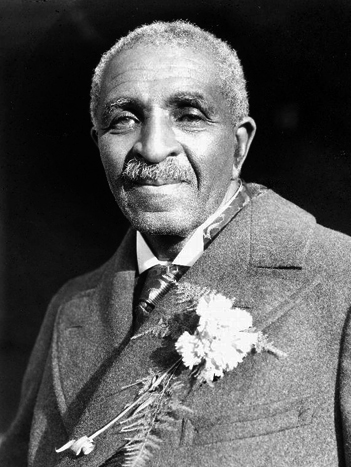
George Washington Carver
(early 1860s-1943)
Agricultural Chemist

In his lifetime, Carver received wide recognition for his pioneering work. The Royal Society of Arts in England made him a member in 1916, a rare honor for an American. In 1923, the NAACP presented him the Spingarn Medal, its highest award for achievement, and in 1939 he received the Theodore Roosevelt Medal for his outstanding contributions to Southern agriculture.
KansasMemory.org, Kansas State Historical Society, Copy and Reuse Restrictions Apply
George Washington Carver was an agricultural chemist. Born into slavery, he helped revolutionize the South’s economy by liberating it from dependence on cotton as its sole crop. During his forty-seven years at Tuskegee Institute, where he headed the Department of Agricultural Research, Dr. Carver developed more than three hundred products from peanuts. His experiments also led to the development of multiple uses for soybeans and other indigenous, but previously unutilized, crops. He helped southern farmers improve their lot by inaugurating farm demonstration programs. Dr. Carver was a member of the Royal Society of Arts, London.
Additional Information
Inventors: George Washington Carver
Historic Missourians: George Washington Carver
George Washington Carver National Monument, National Park Service, Missouri





